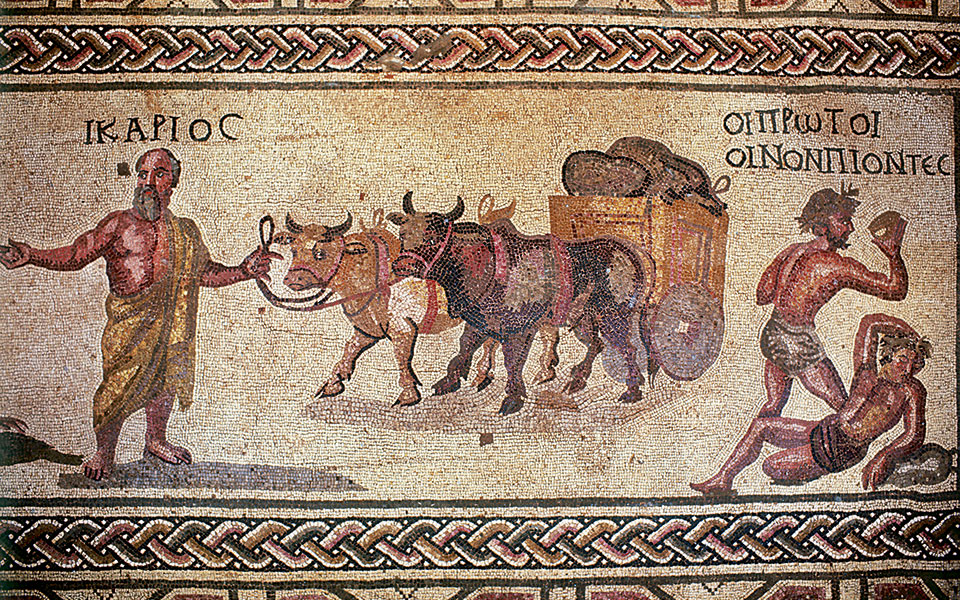Female centaurs are seldom mentioned in ancient literature although they do occasionally appear in ancient greek paintings and roman era mosaics and reliefs.
Floor mosaic battle of the lapiths and centaurs.
Centauress apulian red figure vase fragment c4th b c museum of fine arts boston the kentaurides centaurides were the female members of the kentauroi centaur tribe creatures with the double formed bodies of horses and men.
In the ensuing battle the lapiths overcome the centaurs.
Who was the artist responsible for the sculptural program decorating the parthenon.
Pericles iktinos phidias kallikrates.
However the most identifiable of all these battles is undoubtedly the epic battle of the lapiths and the centaurs.
In a sculptural context centaurs are difficult to misidentify with their human torsos perched on top of equine withers.
The centaurs were invited but they quickly began to misbehave.
Battle of the lapiths and centaurs roman 3rd 4th century c e.
Battle of the lapiths and the centaurs.
Detail of eurytion hippodameia and a centaur from a mosaic depicting the fight between the lapiths and centaurs at the wedding feast of king pirithous.
A floor mosaic found in the remains of a roman house in pompeii is likely a copy of a panel painting peainted by philoxenos of eretria about 310 bce.
The lapiths a peace loving people of thessaly were celebrating the wedding of their king pirithous to hippodamia.
When peirithoüs king of the lapiths invited the centaurs to his wedding the centaurs who became drunk tried to abduct the bride hippodameia and other lapith women.
The ideas of civilization over barbarism and rational thought over chaos.
The mythical lapiths lived in thessaly a region in northern greece.
The war of the lapiths and the centaurs was one of the favourite subjects in greek mythology particularly in art and literature.
On the right a centaur brandishing a tree branch battles a lapith warrior not shown.
Floor mosaic representing a centaur from the acropolis of rhodes.
South side of the parthenon athens circa 440 bc wood engraving 2nd half 19th century centaurs centaur centaurs lapiths greek mythology legend saga legends sagas classical sculpture fine.
The battle of the lapiths and the centaurs the contest between athena and poseido.
Colored stone and glass set in mortar.
The complex is located in the eastern region of rome.
The artwork remains as a floor decoration in the dining room of the main palace within emperor hadrian s extensive villa complex.
The mosaic dates back to 120 130ad and was created by numerous natural stones that varied in color.
The mosaic represents.
One of them eurytus full of liquor tried to carry off the bride and soon a battle raged in which drinking vessels table legs antlers in fact anything to hand.
War of lapiths and centaurs.
The cartel says.
The leader of the lapiths pirithous invited the half human half horse centaurs to his wedding to a woman named hippodamia.
The centaur eurytion on the left seizes the bride hippodameia by the waist.









